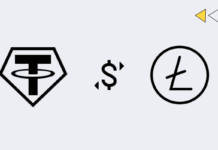Bitcoin holders are responsible for creating and protecting their private keys. This can be easily understood through an example when you travel to another city and leave your home, for the security of your essentials you’ll lock the front door but will you ever leave the key inside the lock? This indicates that if you use a bitcoin wallet, create a private key; you must also protect it. Private keys are like passwords that are used to protect your funds. If an attacker got access to your private key, they would get access to your funds, and your identity may be exposed to them. You can learn about any trading platform by visiting the website as it will help you understand the requirements and strategies of trading Bitcoin.
A responsible individual will lock the door and take the key along with him/her; this is the same in Bitcoin. If you have a created a private key, you are responsible for protecting it. But even after storing private keys at a safe place, do you know how safe your private keys are? Even if you use Microsoft Windows, Linux, MacOS or any other operating system, you must protect private keys.
Best Security Measures to Protect Private Keys
Users need to use best practices to secure their private keys and to carry out the easy transfer of Bitcoin.
Use hardware storage
The safest way to store private keys for a long time is to use a hardware storage device that uses cryptographic principles to keep private keys store. The hardware storage device may include a smart card, USB Token and hardware storage module. If you store private keys in hardware storage, fraudsters have to access your physical device, which is nearly impossible. Users can also security measures to protect their hardware storage device.
Hardware Storage Modules are planned to provide a protected connection for constant access. HSMs are known to provide the best security but, at the same time, are impractical and expensive.
Local file system
Hardware storage is best, but it cannot be used in all the applications like in web servers. As web servers are virtually distributed and abundant, and also the cost of Hardware storage is high. If there is any situation like this with you, it is best to store the private keys of your digital wallet on the local filesystem. To store your private keys on a local filesystem, users must generate the keys on a similar system.
Users tend to generate the private keys on the server and then move them to store them on the local system; this, in turn, increases the vulnerability. But most of the products in today’s time generate the private key on the server and store them on the server, which makes the keys highly vulnerable. There are high chances that keys may get transmitted to third-parties. Undoubtedly, it is an easier approach, but definitely, it is not more secure. Some top-notch services allow users to generate and store private keys on the local system and never engage or contact any other system or user to store or transfer private keys.
Monitor and verify
It might be possible that the methods or processes you are using may provide complete security to your private keys. Users are suggested to the first monitor and then verify the process that they are using. A user must always verify their account balance and access to their private keys. If an attacked would get access to your private keys, they won’t even consider or comprise the process you are using. If you do the monitoring and verification process accurately, it will help you catch any unauthorized access or unexpected events.
You can make use of the best software that will automatically do verification monitoring after a specific period. If you don’t use the software, you have to use a third party to verify the access or private keys.
Restrict user access
It doesn’t matter whether you use a local filesystem, hardware storage device or any other device to store your private keys; you must restrict user access. Restricting user access will limit the number of users that have access to your private keys.








